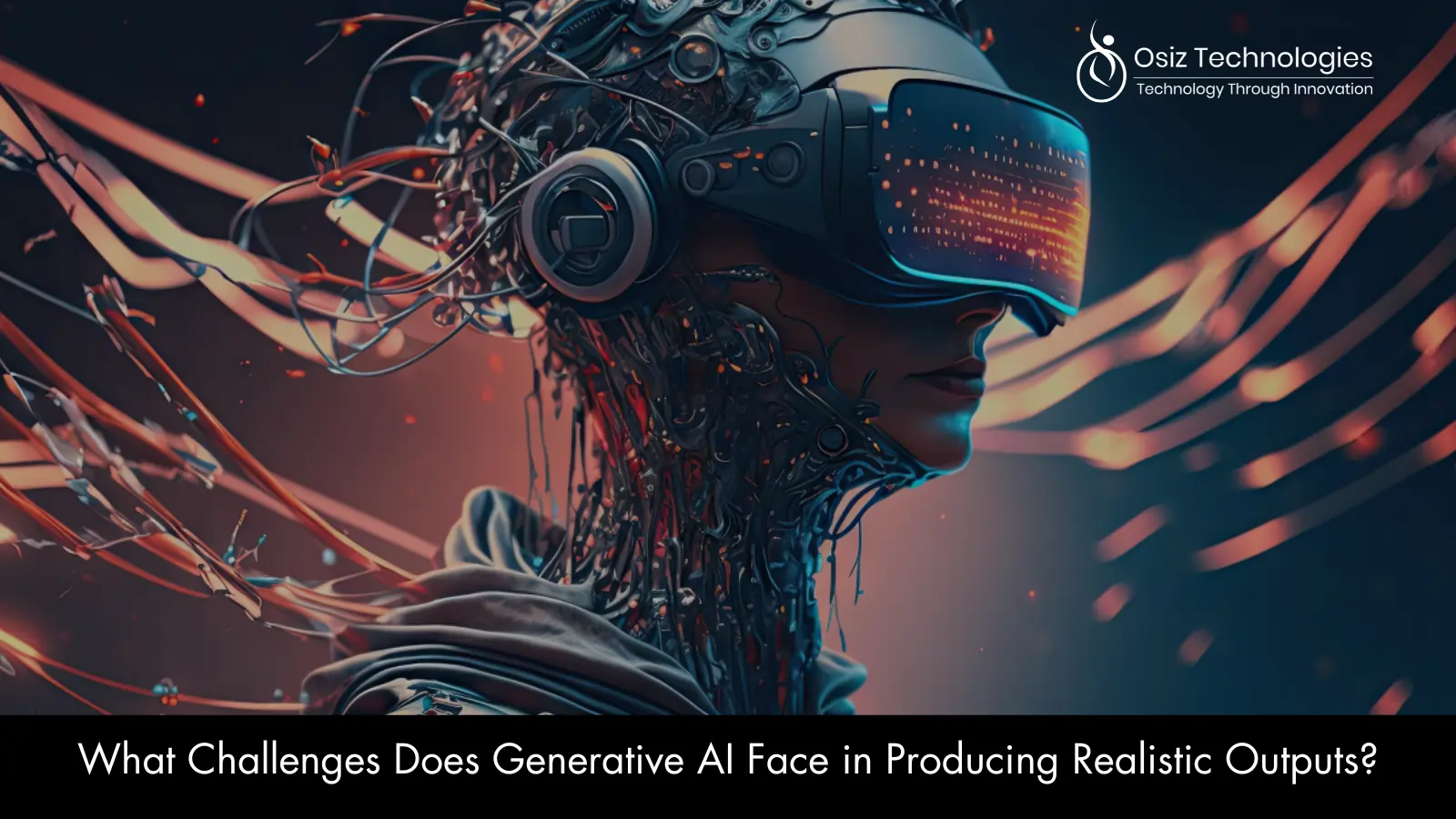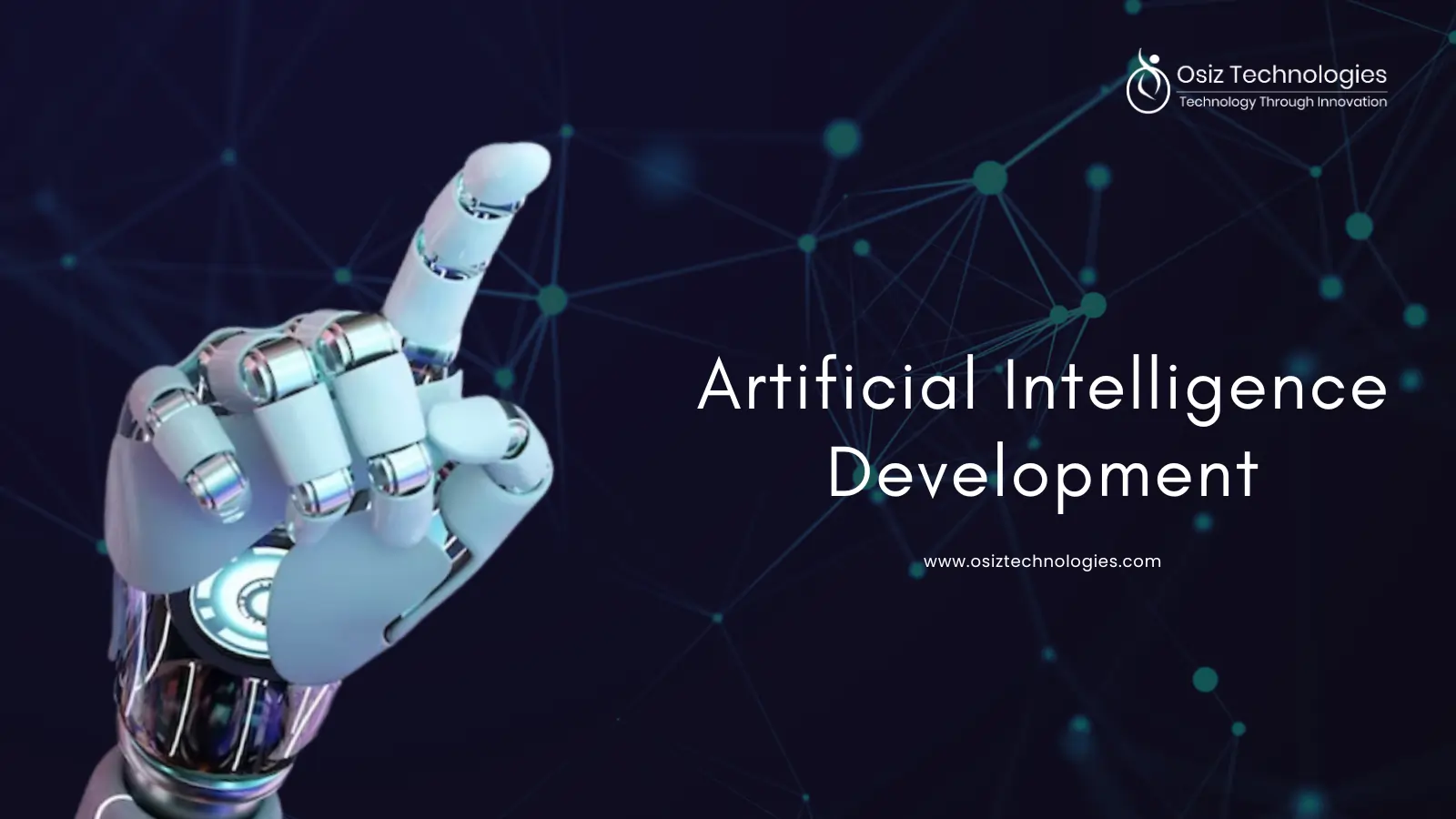Generative AI is a landscape rich with innovation and creativity, but also fraught with challenges. In this blog, we'll navigate through the complexities and obstacles that Generative AI faces in producing realistic outputs.
Top 7 Challenges Generative AI Faces In Producing Realistic Outputs
1. Computational Resources
The extensive computational resources necessary for training and implementing large generative models pose a notable obstacle, especially for smaller entities with constrained resources. The process of training such models necessitates robust hardware and considerable time investment while scaling their deployment demands substantial computational infrastructure. Consequently, this hurdle may impede the ability of organizations lacking financial and technical capabilities to effectively utilize generative AI, potentially resulting in discrepancies in its accessibility and adoption across various sectors and industries.
2. Technical Complexity
Addressing technical complexity poses a significant challenge in the realm of generative AI. Developing and fine-tuning algorithms demands a deep understanding of complex mathematical principles and advanced programming techniques. Moreover, optimizing computational resources to train large-scale generative models requires robust infrastructure and expertise in distributed computing. Handling the intricacies of model architectures and hyperparameters further adds to the technical complexity, requiring meticulous experimentation and tuning.
Ensuring the reliability and scalability of generative AI systems across diverse applications and use cases requires continuous innovation and adaptation. Overcoming these technical hurdles necessitates interdisciplinary collaboration and a commitment to pushing the boundaries of research and development in generative AI.
3. Dependency on Training Data
Generative models rely significantly on the quality and diversity of their training data, presenting a challenge when biases within this data are mirrored in the generated content. If the training data lacks representativeness or harbors inherent biases, the generative AI might perpetuate and potentially exacerbate these biases in its outputs. Addressing this challenge entails meticulous curation of training datasets, preprocessing to mitigate biases, and continuous endeavors to promote fairness and inclusivity in the generated content. Furthermore, organizations must prioritize transparency regarding the origins and biases of their training data to foster trust among users and stakeholders.
4. Ethical Considerations
An essential hurdle in incorporating generative AI involves grappling with ethical implications. These models may inadvertently generate biased or inappropriate content, prompting concerns regarding responsible utilization. Guaranteeing adherence to ethical standards and averting the production of harmful or offensive material necessitates meticulous oversight and the establishment of effective content-filtering mechanisms. Developers and entities must proactively address the perpetuation of biases inherent in the training data, advocating for fairness, transparency, and accountability in the utilization of generative AI systems.
5. Security Concerns
The integration of generative AI faces a notable hurdle in terms of security, given the susceptibility of these models to adversarial attacks. Malicious actors could exploit vulnerabilities in the model to manipulate its outcomes, potentially resulting in the creation of deceptive or harmful content. Protecting generative AI systems from such threats necessitates continuous research and the implementation of effective security protocols. This involves adopting methods to identify and counter adversarial efforts, as well as ensuring the security of the deployment environment to thwart unauthorized access and manipulation of the model.
6. Legal and Regulatory Issues
Employing generative AI introduces legal and regulatory complexities, especially in sectors with stringent regulations concerning data privacy, intellectual property, and ethical AI deployment. Questions may emerge regarding content ownership and associated rights, alongside apprehensions about the misuse of AI-generated data. Maneuvering through this intricate legal terrain demands comprehensive comprehension of prevailing regulations, formulation of ethical guidelines, and proactive endeavors to adhere to evolving legal norms. Entities adopting generative AI must collaborate closely with legal professionals to tackle these challenges and uphold conformity with pertinent laws and regulations.
7. Lack of High-Quality Data
The lack of high-quality data presents a significant challenge for Generative AI, hindering its ability to produce accurate and realistic outputs. Without access to diverse and representative datasets, Generative AI models may struggle to learn and generalize effectively, leading to suboptimal performance.
Data scarcity can exacerbate biases and limitations in the training data, resulting in biased or flawed outputs. Curating high-quality datasets requires substantial resources and expertise, posing a barrier for organizations with limited access to data or data collection capabilities.
Ensuring data privacy and compliance with regulations further complicates the acquisition and use of datasets for training Generative AI models. Addressing this challenge demands innovative approaches to data collection, augmentation, and synthesis, as well as collaborations with data providers and domain experts to access and curate high-quality data.
Generative AI: Turning Challenges into Opportunities
The challenges encountered by Generative AI in producing realistic outputs also present opportunities for innovation and advancement in the field. Collaborative efforts with cloud service providers offer opportunities to access scalable computational resources, overcoming limitations imposed by computational constraints. Advancements in machine learning algorithms and frameworks provide avenues to simplify technical complexities, streamlining model development and fine-tuning processes. Innovations in data augmentation techniques present opportunities to enhance dataset diversity and quality, mitigating the dependency on training data.
Addressing ethical considerations through the development of robust AI frameworks fosters responsible and transparent deployment practices, ensuring societal acceptance and trust. Integration of cybersecurity measures and legal expertise offers opportunities to mitigate security and regulatory concerns, safeguarding the integrity and compliance of generative AI systems. Initiatives promoting data sharing and collaboration within the research community facilitate the creation of larger and more diverse datasets, addressing challenges associated with the lack of high-quality data.
Embracing these opportunities enables the Generative AI field to overcome hurdles and unlock its full potential in producing realistic and impactful outputs across various domains.
Closing Thoughts
The challenges faced by Generative AI in producing realistic outputs are multifaceted and require innovative solutions. As a leading Generative AI Development Company, Osiz recognizes the importance of addressing these hurdles to unlock the full potential of this technology. By overcoming challenges such as data scarcity, technical complexity, and ethical considerations, we can pave the way for more accurate and reliable generative AI models.
Advancing the field of generative AI requires a collaborative approach across diverse disciplines, continuous research and innovation, and strict adherence to ethical standards. While challenges persist, the potential for groundbreaking impact and innovation is immense. By addressing these hurdles proactively, we can accelerate progress and uncover transformative opportunities. Partnering with a trusted AI Development Company ensures the responsible development and deployment of generative AI solutions, driving meaningful change across industries.
Listen To The Article
Recent Blogs

X-Mas 30%
Offer











